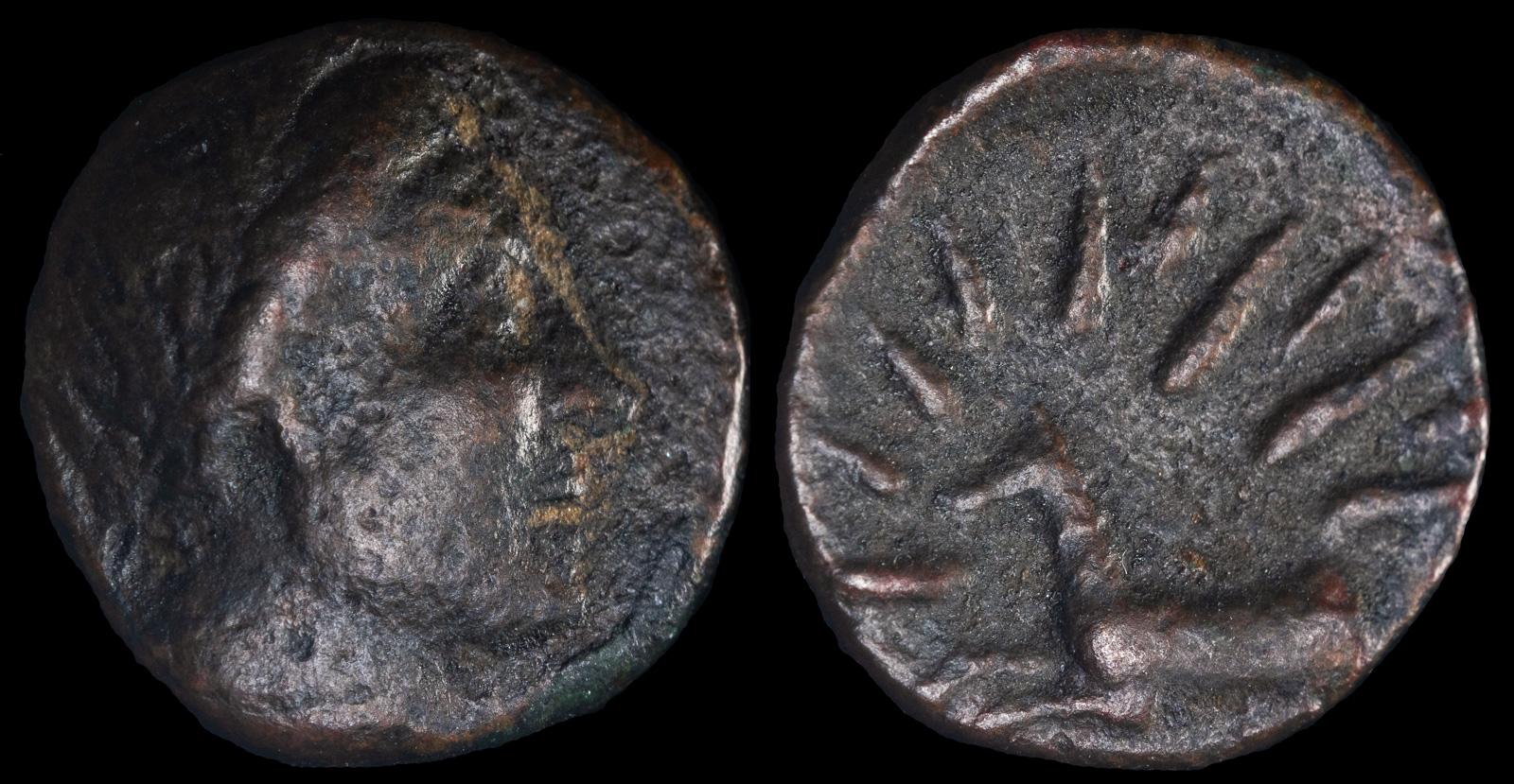
Cyclades, Keos. Ioulis
Late 3rd-early 2nd century BCE
Æ 11mm, 1.38 g, 6h
Laureate head of Apollo right /
Radiate forepart of Sirius left.
Papageorgiadou-Banis Series VIII; HGC 6, 525
Ex Aleph Collection
Ex Errett Bishop Collection
Ioulis was one of the four cities on the island of Kea and one of the three to mint coins. It eventually swallowed up the other cities until only it remained, and the ruins of the ancient city may still be visited.
The Greek lyric poet Simonides, one of the great nine lyric poets, was reputed to be born in Ioulis. Bacchylides, who also counted among the nine, was also born there. Although Prodikos was labeled “of Kios”, he was actually born in Ioulis, and was one of the first ancient linguists.
In 364 BCE, Ioulis led a revolt against Athens, which failed. An Athenian decree that detailed the punishing of the Kean cities has been found.